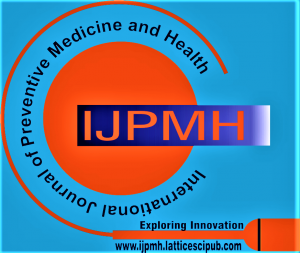![]()
Knowledge, Attitude and Practice on Cardiovascular Disease Among the Patients and Bystanders of a Multispecialty Hospital in Ernakulam District of Central Kerala, India
Asif Ajmal Ameer Khan1, Nesrin Mohamed2, Tiju Zachariah3, R. Mohamed Azarudeen4, Sulfikar Sainudeen5
1Dr. Asif Ajmal Ameer Khan, Department of Emergency Medicine, Sree Narayana Institute of Medical Sciences, Chalakka (Kerala), India.
2Dr. Nesrin Mohamed, Junior Resident in Nephrology, Sree Narayana Institute of Medical Sciences, Chalakka (Kerala), India.
3Dr. Tiju Zachariah, Emergency Medical Officer, Sree Narayana Institute of Medical Sciences, Chalakka (Kerala), India.
4Dr. R. Mohammed Azarudeen, Emergency Physician, Sree Narayana Institute of Medical Sciences, Chalakka (Kerala), India.
5Dr. Sulfikar Sainideen, Casualty Medical Officer, KTCT Hospital, Karavaram (Kerala), India.
Manuscript received on 27 March 2022 | Revised Manuscript received on 09 April 2022 | Manuscript Accepted on 15 May 2022 | Manuscript published on 30 May 2022 | PP: 7-14 | Volume-2 Issue-4, May 2022. | Retrieval Number: 100.1/ijpmh.D1019052422 | DOI: 10.54105/ijpmh.D1019.052422
Open Access | Ethics and Policies | Cite | Mendeley | Indexing and Abstracting
© The Authors. Published by Lattice Science Publication (LSP). This is an open-access article under the CC-BY-NC-ND license (http://creativecommons.org/licenses/by-nc-nd/4.0/)
Abstract: Kerala has seen a steep rise in the number of people affected by non-communicable diseases especially CVDs. There has also been an increase in the number of people being brought to the hospital emergency departments with acute coronary syndrome. With those facts in our minds, the research team wanted to assess the knowledge, attitude and practice on cardiovascular disease among the patients and bystanders visiting our tertiary care health centre in a rural part of Kerala. A cross sectional study was done using convenient sampling. An expert validated structured questionnaire was given to subjects after applying the exclusion criteria. A total of 354 people participated in the study with majority of males (56.5%). The questionnaire included questions regarding the knowledge regarding cardiovascular risk factors, knowledge regarding symptoms of acute coronary syndrome, attitude towards the risk factors and finally the practices carried out by them. The collected data was entered in Microsoft Excel and was analysed using SPSS version 20 software. After the analysis of the results, regarding questions related to knowledge, 77.4% subjects knew smoking is a risk factor for CVD. Most of the subjects knew that consuming fruits and vegetables regularly can prevent CVD. Regarding questions related to attitude, 65.8% agreed that regular exercise can prevent CVD. More than half of the subjects followed healthy lifestyle. There were statistically significant differences observed in knowledge level between sexes (males having a more mean knowledge score than females, p =0.001), age (age group of 20-30 having a high mean knowledge score than other age groups from 31-60, p< 0.001), education (graduates having a more mean knowledge score than those with primary and secondary education, p<0.001) and occupation (professionals having a high mean knowledge score compared to other fields of employment that we evaluated, p<0.001). More than half of the subjects were currently smoking (57.1%). This study revealed that the population had good knowledge and attitude regarding CVD risk factors. Yet, the number of smokers was still quite high. Development of better public information system is essential for the well-being of the society. Furthermore, despite having knowledge regarding certain factors, people showed less willingness to make lifestyle changes which also affected their practices. Hence, it is necessary to study KAP of the population at regular intervals to educate the people better and to aid in the planning of health promotion activities. This study proves that even though the people have good knowledge and attitude regarding CVD, the practices for prevention are not satisfactory. The researchers suggest that better health education campaigns regarding modifiable cardiovascular disease risk factors should be carried out among the public.
Keywords: Cardiovascular, Disease KAP, Kerala, India, Outpatient, Risk Factors
Scope of the Article: Community Health
